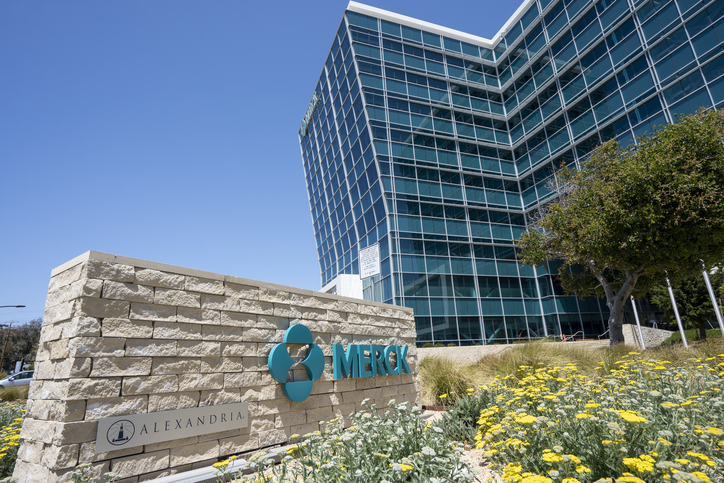Pharmaceutical giant Merck announced the cancellation of a planned $1.3 billion research center in London and the termination of all research and development activities in the United Kingdom (UK).
The company said on September 10 its decision “reflects the challenges of the UK not making meaningful progress addressing the lack of investment in the life-science industry and the overall undervaluation of innovative medicines and vaccines by successive UK governments.”
UK Out, U.S. In
Drug manufacturers have repeatedly warned UK policies, “including the process through which the [National Health Service] buys medicines, could compel them to devote their resources elsewhere, and even not launch their medicines in the country,” StatNews reported.
Merck opened a $1 billion facility in North Carolina in March and is one of several major U.S. and foreign drugmakers to announce multibillion-dollar investments in the United States in recent months. Others include Eli Lilly, GlaxoSmithKline, Johnson & Johnson, Novartis, Pfizer, Roche, and Sanofi.
Weeks after Merck said it would abandon its London operations, British drug maker AstraZeneca announced it would open a $4.5 billion manufacturing facility in Albermarle County, Virginia, as part of a planned $50 billion investment in the United States, the company unveiled in July.
“Today’s groundbreaking demonstrates the Trump administration’s commitment to onshoring drug manufacturing and strengthening supply chains to improve Americans’ access to medications,” said Dr. Mehmet Oz, administrator of the Centers for Medicare & Medicaid Services, in a statement. “I congratulate AstraZeneca for their investment and invite other manufacturers to follow suit.”
Tariff Avoidance
In the last few months, drug makers have committed to spending more than $500 billion on new facilities in the United States, generating “roughly 1.2 trillion in economic output and more than 100,000 new jobs, including 25,000 biopharmaceutical jobs,” according to the industry trade group PhARMA, The Washington Times reported.
Alongside U.S. drug companies trying to make deals with the Trump White House, “Global drug makers are rushing to boost U.S. manufacturing and inventory as the Trump administration weighs a 100% tariff on imported branded and patented drugs,” reports Reuters.
“Because building a factory takes years and most U.S. drugs are imported, the Trump administration has granted tariff exemptions to companies that commit to building drug-making facilities in America,” writes Sara Eisen in The Washington Post.
Price Controls?
Though U.S. consumers benefit from hostile regulation in the U.K. and elsewhere in Europe, the U.S. pharmaceutical industry and American patients struggle under Washington’s own heavy hand, says Sally Pipes, president and CEO of the Pacific Research Institute.
“Take the price-control scheme signed into law by former president Joe Biden as part of the 2022 Inflation Reduction Act (IRA),” Pipes wrote in Newsmax. “That policy allows the federal government to name its own price for a growing number of medicines paid for through Medicare. The first 10 drugs dispensed through the Part D prescription drug benefit will be hit with price caps in January 2026. Fifteen more will be subject to price controls beginning in 2027.”
In 2029, the IRA drug policy will impose government price negotiation on 20 drugs, writes Pipes.
“As this price-control program unfolds, the U.S. drug market will come to resemble the U.K.’s,” Pipes wrote.
Trump administration drug policies, notably its most-favored nation (MFN) pricing deals (see article, page 9), also give government control over drug prices, writes Pipes.
“This proposal would force drug companies to sell their medicines to Americans at the lowest price available in any other nation,” wrote Pipes. “The United Kingdom shows exactly what will happen under such price controls.”
In addition, the 340 B drug pricing program, which Congress created in 1992, compels drug makers to sell their prescription drugs at a discount, often to large hospital complexes that receive excess profits from the lower prices (see article, page 5).
Allow Market to Set Prices
Trump administration policies for “shoring up U.S.-based production, which is properly seen as a matter of public health and national security in a perilous world,” are a welcome development but “must proceed with caution,” says Jeff Stier, senior fellow at the Consumer Choice Center.
“The Trump administration, which elsewhere stands up for free-market principles, must reverse course [on U.S. drug policies] and reject price controls for pharmaceuticals,” said Stier.
“By advancing policies, including the Biden administration’s Inflation Reduction Act’s price controls, the administration risks destroying the lifesaving innovation that only comes about when investors have reason to believe that a very risky investment could offer commercial returns. There’s no use in bringing back the golden goose from overseas only to sacrifice it on socialist policies dressed up as populism.”
Importing ‘Harmful Side Effects’
Letting the market determine prices has worked well in the United States, says Jeremy Nighohossian, Ph.D., an economist and senior fellow at the Competitive Enterprise Institute
“Pharmaceutical companies are investing and researching in the United States because this nation provides the freedom to innovate and reap the rewards of innovation,” said Nighohossian. “The Trump administration’s Most Favored Nation pricing policy, however, will replace that incentive with other countries’ restrictive policies and import all the harmful side effects that Americans don’t yet worry about.”
Bonner Russell Cohen, Ph.D., ([email protected]) is a senior policy analyst with the Committee for a Constructive Tomorrow (CFACT).




